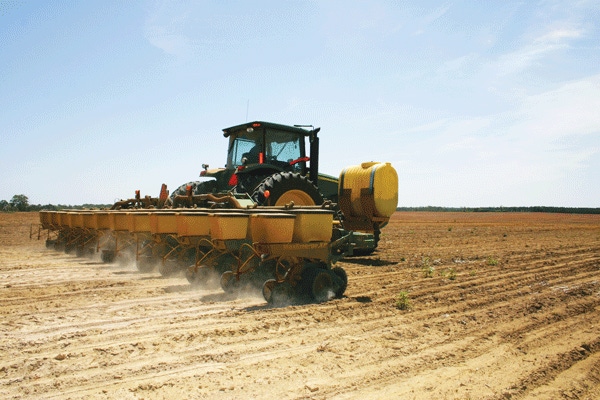
• In a spirited annual address to approximately 6,000 farmers and ranchers attending AFBF’s 92nd Annual Meeting, Bob Stallman said farmers and ranchers are using new tools to share their personal stories like never before.• He also relayed to Farm Bureau members a new-found attitude of unity and assertiveness throughout agriculture, in part, to counter-balance those who are hell-bent on misleading consumers.
January 11, 2011

America’s farmers and ranchers are positively embracing consumers like never before, but the adversaries of today’s agriculture — from overzealous regulators to those trying to split agriculture into good and bad — will also discover a new assertive attitude in farm country, according to Bob Stallman, president of the American Farm Bureau Federation.
In a spirited annual address to approximately 6,000 farmers and ranchers attending AFBF’s 92nd Annual Meeting, Stallman said farmers and ranchers are using new tools to share their personal stories like never before. He also relayed to Farm Bureau members a new-found attitude of unity and assertiveness throughout agriculture, in part, “to counter-balance those who are hell-bent on misleading consumers.”
“Our goal is to work together to increase consumer knowledge and restore trust in our nation’s food production system,” Stallman said. “While we know we are committed to producing safe and nutritious food, to protecting and enhancing the environment and humanely caring for our animals, the public — our neighbors — still want to be convinced,” Stallman said. “Improving consumer trust is job one.”
While farmers and ranchers pursue this aggressive, new mission, Farm Bureau will continue to fight on their behalf. Stallman outlined organizational efforts to protect America’s farmers and ranchers from regulatory challenges that threaten to “downsize American agriculture, mothball productivity and outsource our farms.”
Will take on EPA
Stallman announced AFBF will soon file suit against Environmental Protection Agency regulations aimed at the Chesapeake Bay, which include provisions that will strip power from the states and potentially affect every farm and ranch in the nation.
“EPA likes to call the new regulations a pollution diet, but this diet threatens to starve agriculture out of the entire 64,000 square-mile Chesapeake Bay watershed, and this new approach will not end with the Bay. EPA has already revealed its plan to take similar action in other watersheds across the nation, including the Mississippi River watershed,” Stallman said.
A litany of EPA regulations, from water and dust, to greenhouse gases and endangered species, has put agriculture in the crosshairs, at the very time agriculture’s environmental footprint is shrinking and productivity is on the rise, he asserted.
“We are producing more using fewer resources,” Stallman said. “Total U.S. crop yield has increased more than 360 percent since 1950. Farmers are producing 262 percent more food with 2 percent fewer inputs. It takes 40 percent less feed for a cow to produce 100 pounds of milk than it did just 30 years ago. Any way you slice it, more with less makes sense for people and our planet.”
Stallman urged Farm Bureau members to carefully consider the organization’s position on federal fiscal policy. He told members that an organization with Farm Bureau’s political and policy influence has “a responsibility and an obligation” to weigh in and help find solutions.
“It will require budget cuts and those cuts will be painful,” Stallman said. “Every aspect of our government and every program and service we enjoy as Americans will be on the table. This problem will not be solved with slogans, sound bites and symbolism. It will not be solved with partisanship that is focused on the acquisition of power, rather than solutions for our nation.”
Stallman told Farm Bureau members it is appropriate that the nation’s budget and deficit concerns drive the debate surrounding the 2012 farm bill. But he said “the historic and stabilizing role the farm program has played in American agriculture” also must be considered as the organization weighs policy options.
“As an organization that represents all regions and all production, this will be tough sledding,” Stallman said. “But to ensure our position of leadership in the farm bill debate, we must have direction that is clear, a strategy that is inclusive and an outlook that is visionary.”
In its 92nd year, AFBF celebrated a membership milestone during the meeting, as the organization marked 50 consecutive years of membership growth. Farm Bureau membership at the national level stands at 6,279,813 member families.
You May Also Like



